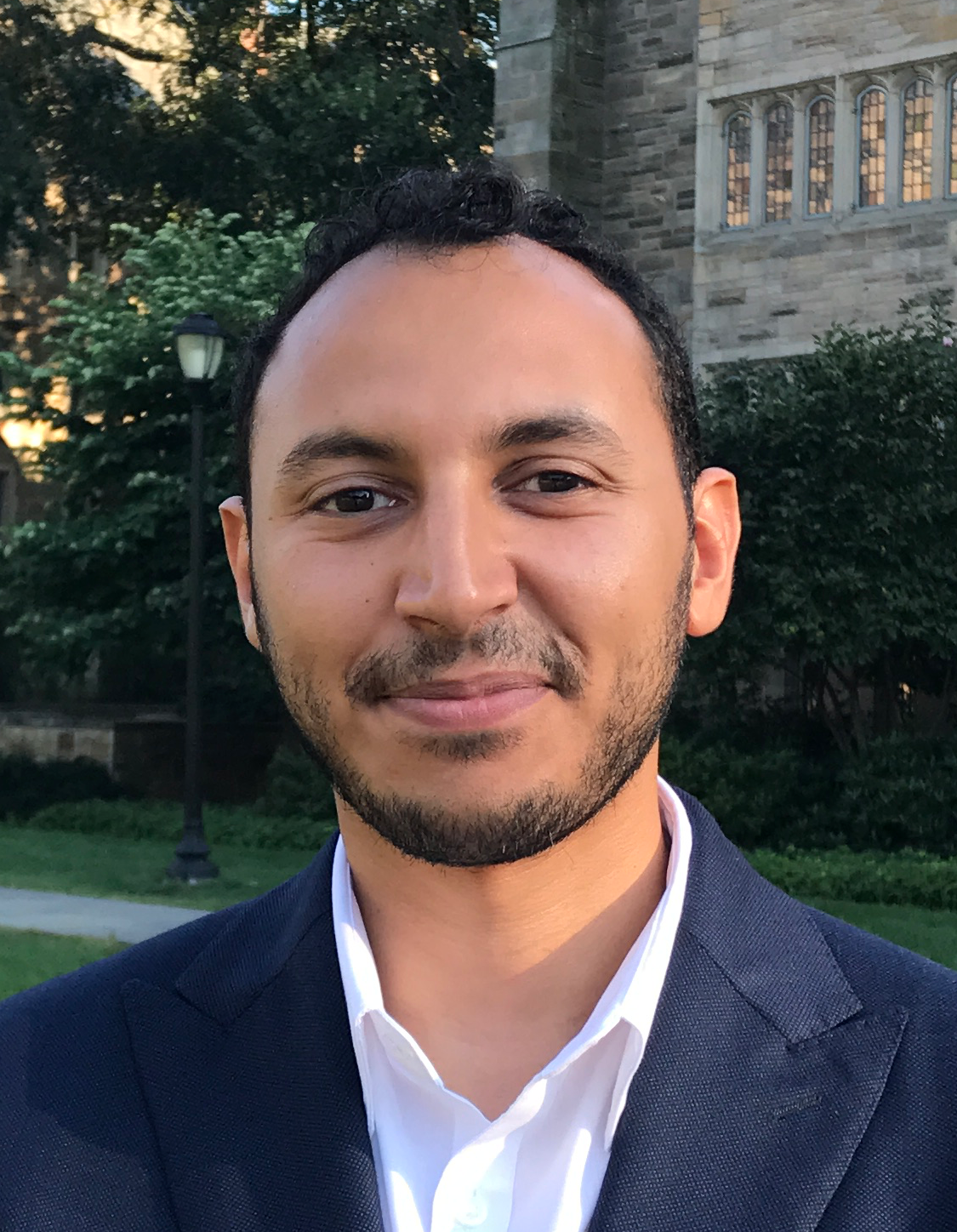The End of Feelings
Kamel Ajji
Love does not rule, but is ruled.
Introduction
“The End of Feelings” is a short story that offers an original perspective on the consequences of algorithms on relationship making and individual liberty. It draws upon the current research on algorithmic bias in the context of dating apps, and extrapolates its effects with regard to individual liberty, the essence of love, and its plural configurations in today’s global society.
This text raises a question about the extent to which we accept algorithms governing our perceptions and choices. Relationships are a key aspect of life, personality, and well-being. To many, “love” seems to be ruled by a great number of empirical factors that cannot be controlled or rationally explained. The story plunges the reader into a world where technology eliminates uncertainty. Does free will mean the ability to make a decision without anyone’s interference or control? Or do we exercise our free will when we make the best decision that fits our situation (thus accepting interference by third parties)? Allowing a company to make people’s choices with regard to relationships means giving this entity a tremendous power, not only over people’s decisions, but over society, its laws, peace, and politics. On another level, the story invites readers to think about the structuring role that love and relationships play in today’s and tomorrow’s societies. Will technology kill love and feelings or magnify them? This story is written as a novel, in the sense of a plausible extrapolation of reality. The utopian or dystopian quality of the text is left to the reader’s consideration. To the author, the utopia is the reader, and what they will make out of the story. If they decide that this future is desirable, so be it. If not, they will have to think about how to protect feelings and love from the unlimited use of algorithms.
Keywords
About the author

Kamel Ajji
Paris II Panthéon-Assas University
Every morning at 8:00 AM, Adam double clicks on the back of his right ear. A nanosensor starts a program that analyzes his heartbeat, level of sleep, stress, and empathy. His iris contracts rapidly. Three times. For the next eighteen hours, his social interactions will be adjusted. The risk of conflict is reduced, as the program adjusts, by means of microelectric impulses, his facial and cardiac reactions in line with his counterparts’ words and expressions.
Adam ardently desires two things: to be respected and loved. As a lawyer, he masks his feelings to represent his clients’ interests. Perfect trick. State of the art. Excellent results. Yet outside work and despite efforts, he cannot keep his attraction to women a secret. Adam’s attitude, body temperature, and interactions constitute “primary behaviors.” Women keep away from him. Any eye contact is furtive, ashamed, or suspicious.
Despite such mishaps, Adam has always refused to use a service that would help him to achieve love. Most of his colleagues and friends have embraced it in recent years. While he has doubted the effects and remained single, Andrew, Sarah, and Noor—his closest friends—have got married and look satisfied.
At lunch, they often discuss Adam’s reluctance to join the movement.
Noor: “Have you joined yet?”
Adam: “I’m considering it.”
Sarah: “Your interest in primitive relationship-making is bizarre. Why do you bother with feelings?”
Adam: “I just … I wonder if Life is the algorithm I believe in. Why couldn’t we just meet people naturally, the old-fashioned way? People managed to do it before the Transition.”
Sarah: “It’s flawed, from the beginning. If ‘Life’ could speak, it would tell you we were right to govern our feelings. All societies have decided to preserve public order and harmony by using technology to veil our emotions. Our chips are the condition of our freedom. They are our freedom. Feelings were a source of paternalism, jealousy, competition, resentment, violence, crime, lack of control and even war … I only see the negative aspects that hurt the community for so long. Uncontrolled feelings sound like noise and deprive us of our right to harmony and peace. Is this what you want for us?”
Adam: “No, I actually never thought of it this way. I just like the beauty of human feelings. A part of me can’t renounce them.”
Noor: “But love demands renunciation, Adam. If you are not ready to renounce your ‘feelings,’ then you cannot welcome love. Your faith in life is not being taken away from you but revealed to you and you are not able to accept it. We did, and it worked thanks to Lover-Beloved. It will for you too. Except if you keep believing in the old false promise of uniqueness and individualism. We are all the same Adam, whether you like it or not.”
Adam: “You’re probably right.”
On his way home, Adam feels stunned by this conversation. Noor and Sarah can’t understand his aspirations. Alone at night, before falling asleep, he reads a few lines and poems from his mother for inspiration and perspective. These pieces always served to guide him when he was growing up.
*
Life is a silent teacher.
*
Love is the unseen, the unheard, the unsaid.
*
Love is the cement of our soul.
*
I want the Other in her greatest otherness,
To feel the difference,
May all things separate us,
May a wire connect us.
*
The algorithm you look for is yourself.
We are the algorithm of Life.
Life is our algorithm.
*
Nothing within Adam wants to surrender. No private company or chip could ever be the key to love. Love is like the wind. You cannot see it, grasp it, or control it, but only perceive its effects. It is there, slapping your face or caressing it. No one can deny or renounce the wind, he thought.
Yet, Adam’s inner resistance to the discipline of a private company slowly starts to erode. Noor’s insights about renunciation haunt him at night. Nothing he has tested so far has changed his reality. His patience, efforts, and faith in love have never been rewarded. Maybe he is inflicting torture on himself by being attached to an idea that is never borne out in reality. He was the first to resist the solution and the last among his relatives to believe in love. Why so much resistance? Would adhering the service mean surrendering his hope and therefore himself? Could renunciation be the door to love and the company its key?
On his way back to work, and as doubts both discolor and stain his mind, Adam is shown ads visible only to him. “Why would you renounce Love Adam?”, “What matters to you? An ideal, or Love?,” “We know who is there for you,” “Break Up with Doubts. Embrace The Path. Join Lover-Beloved.” These words sent shivers to Adam, who felt his tears instantly being dried, then relieved. He just decided to alter his feelings in order to “adjust,” and accepted Lover-Beloved assistance called “The Path.”
He thought he would act as the Trojan horse in the system, not to take it down but to prove that, despite the mechanism, he could still love. Before joining, Adam burned the lines he had written about the company in protest before the Transition.
*
You make yourself the relationship surgeon,
Open the wound before it exists.
Close it. You know the protocol.
Scar upon scar,
Experience after experience,
That is what humans are meant for.
What is essential is to be a good surgeon.
*
Lover-Beloved, the service Adam adhered to, identifies partners that will be a good fit for him based on his character, skills, and long-term expectations. On a daily basis, the program monitors his diet, his exercise and walking habits, the time he spends in front of screens, his sleeping patterns, and his overall aptitude for well-being. Adam has nothing more to care about than being himself. Lover-Beloved pairs his profile with selected candidates and determines if, when, and where they should meet based on their schedule.
This morning, Adam received a notification. At 7:30 PM, he will have dinner with Julia, a software engineer, in her favorite restaurant near her office. As a thirty-two-year-old single male, Adam cannot afford to miss this opportunity, or he could face being down-ranked or banned from the service. During the day, he tries to remain focused on his work but actually wonders what Julia looks like, how he will entertain her with conversation, and if their life will be as satisfying as Lover-Beloved promises.
The company doesn’t just match people; it assigns them to each other. A nine-billion human community convinced the CEO to improve “Love experiences” by reducing the time and cost of searching for one’s soulmate. In 2030, Lover-Beloved ran a global survey showing that 78% of connected humans thought they lack the skills to manage their emotional life, and 62% do not know precisely the type of relationship that would fit their needs. Chance is a relic of the past since technology allows for efficient adjustments. With 1.2 billion couples formed over the past decade, the company has convinced more than 3.5 billion singles to trust its service.
Nothing to fear, nothing to feel.
7:00 PM. Adam leaves the office. A cab drives him to the restaurant where Lover-Beloved has made a reservation. Fifteen minutes before Julia’s arrival, the program displays images of Adam’s past life on his phone. His loneliness on vacations, the fear of marginalization, the list of failed relationships shows up illustrated with past messages, comments, status, and pictures. “Julia is the one. Your Other.,” announces the screen.
As Julia enters the restaurant and walks across the room, Adam contemplates the end of his bachelorhood. “Hello Julia,” says Adam with confidence. “Hello Adam,” replies Julia with a smile. Lover-Beloved records their conversation to make sure that the level of engagement meets the prediction. After a long dinner and a few laughs, Julia and Adam connect their phones. They adjust their behavior to maintain a sound connection, send a report to Lover-Beloved, and decide to “seal and share.”
From now on, the couple will be recognized as supported by the company and known by other people. No ring. No contract. Lover-Beloved offers them a new family name for a fresh start. Love requires a renunciation of past allegiances and suffering, which the Lover-Beloved Code provides.
Julia and Adam were born to meet. In fact, Lover-Beloved assigned them based on their school work. At seven, they showed similar interests and complementary psychological failures, making them a perfect-neutral couple. Search, the once most powerful online query service and now personal aide, promoted their application to university and jobs so as to follow the plan by showing evidence of their curiosity about engineering and law based on their readings. Lover-Beloved was waiting for Adam to join.
June 2042. Caleb was born during Julia and Adam’s vacation. As the family settles in their new apartment, Lover-Beloved offers the baby free access to the service for 20 years as a reward for his parents’ trust.
On his birthday, Adam receives a new notification. Lover-Beloved has found a new partner for him. He will leave tonight.
Love does not rule, but is ruled.
The End.
Discussion questions
How did you feel when reading the story?
How would you react if you were in Adam’s situation?
Do you see this version of 2040 as desirable, or worrying?
Further Reading
Black Mirror, season 4, episode 4, “Hang The DJ” directed by Tim Van Patten, written by Charlie Brooker, aired December 29, 2017 on Netflix.
Duportail, Judith. 2019. L’amour sous algorithme. Paris: Gouttes d’Or.
Khan, Khalid, and Sameer Chaudhry. 2015. Clueless, Dateless, Loveless: There is No Catch; Just Find Your Perfect Match. Kindle ed. 2016.
Meghna Chakrabarti and Daniel Jones, “Modern Love,” first aired Aril 26, 2017 – present (weekly), podcast, MP3 audio, produced by WBUR. ➚
Wells, Sarah. 2018. “Hinge employs new algorithm to find your ‘most compatible’ match.” TechCrunch, July 11, 2018. ➚
Digital Pharaohs
ZombAI apocalypse or digital immortality? Will AI break the intergenerational contract? In a post global-warming world, a couple has to decide how much influence it wants to give to the digital ghosts of the past and find their destiny.

